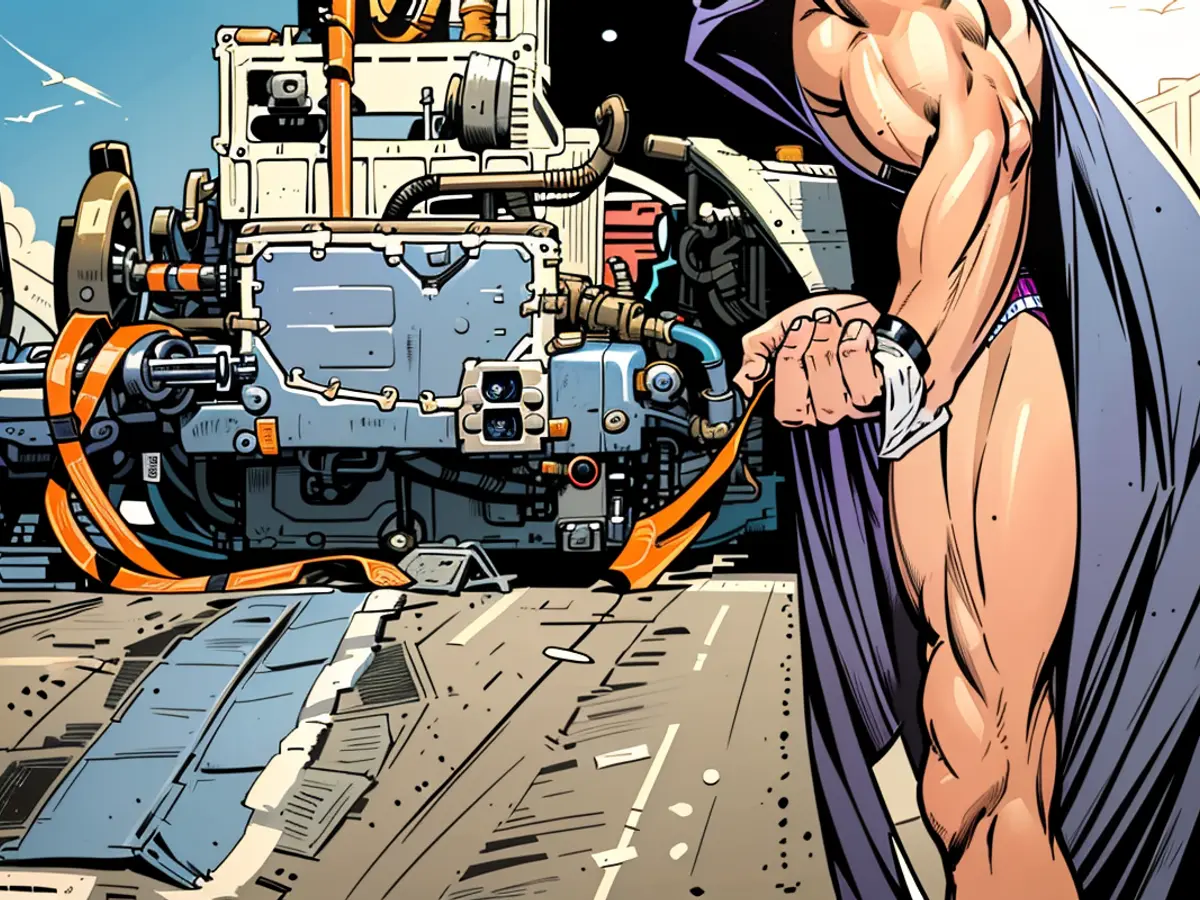Research and development - Mercedes wants to significantly reduce costs for e-car batteries
Mercedes-Benz automaker bundles E-Car battery research and development in Stuttgart. "It is our ambition to also take a technologically leading role in electric driving," said Board Chairman Ola Kaellenius at the opening of the so-called eCampus, which is located on the grounds of the works in Stuttgart-Untertürkheim. "The work that is being done here will contribute to reducing battery costs by more than 30 percent in the coming years."
In the more than 30,000 square meter large competence center, cells and batteries for future electric cars from Mercedes are to be developed. According to reports, different types of battery cells can be manufactured and tested there. A new factory has a capacity of several 10,000 cells per year.
Beyond that, the campus includes a test and validation center, which is expected to be completed by the end of the year. There, safety and durability of batteries will be investigated. The gained insights, for example about industrial battery production, will then flow into series production at partner companies. Both Federal Minister of Economics Robert Habeck and Baden-Württemberg Minister President Winfried Kretschmann (both Greens) were present at the opening on Monday.
Campus strengthens Mercedes traditions
For Kaellenius, the Campus is also a declaration of loyalty to the headquarters. "We want the Untertürkheim plant not only to have a great tradition, but also a great future," he said. Three-digit million investments have been made.
The traditions workshop at the Neckar has existed for 120 years. Currently, more than 23,000 people work there - around 14,000 in production. They develop and manufacture components such as engines, batteries, and axles. Mercedes also plans to begin production of its own electric motors at this location this year. In addition, Untertürkheim is the seat of the corporate headquarters.
E-Car demand slows down development
Due to the slow sales of electric cars, Mercedes had recently taken a more flexible approach strategically. The plan of an exclusively electric generation of car series from 2028 was abandoned by the automaker. Until the 2030s, both electric drives and combustion engines will be produced. The pace of transformation is determined by customer wishes and market conditions, it was said recently. Strategically, however, it is clear: "The goal is Nullemission," Kaellenius said.
Mercedes plans to reach up to 50 percent of global sales with fully electric cars and plug-in hybrids in the second half of this decade. The company is already more optimistic. By 2039, the automaker aims for a financially balanced CO2-neutral new car fleet.
- Ola Källenius, the Board Chairman of Mercedes-Benz, expressed his ambition for the company to lead in technological advancements in electric vehicles during the opening of the eCampus in Stuttgart-Untertürkheim.
- The eCampus in Stuttgart, run by Mercedes-Benz, is a large competence center where future electric car batteries are being developed, aiming to reduce battery costs by over 30%.
- Located in Baden-Württemberg, the eCampus in Untertürkheim houses facilities for manufacturing and testing battery cells from various electrical industries, contributing to the company's goals in the automotive industry.
- Beyond its battery research and development efforts, Mercedes-Benz has plans to start producing its own electric motors in Untertürkheim this year, showcasing its commitment to vehicle construction.
- The German Minister of Economics, Robert Habeck, and the Baden-Württemberg Minister President, Winfried Kretschmann (both Green Party), were present for the opening of the eCampus, supporting Mercedes-Benz's commitment to sustainable transportation in Germany.
- Despite a slight decrease in electric car demand, Mercedes-Benz remains dedicated to achieving their goal of a carbon-neutral new car fleet by 2039, aiming for up to 50% of their global sales to consist of fully electric cars and plug-in hybrids in the second half of this decade.








